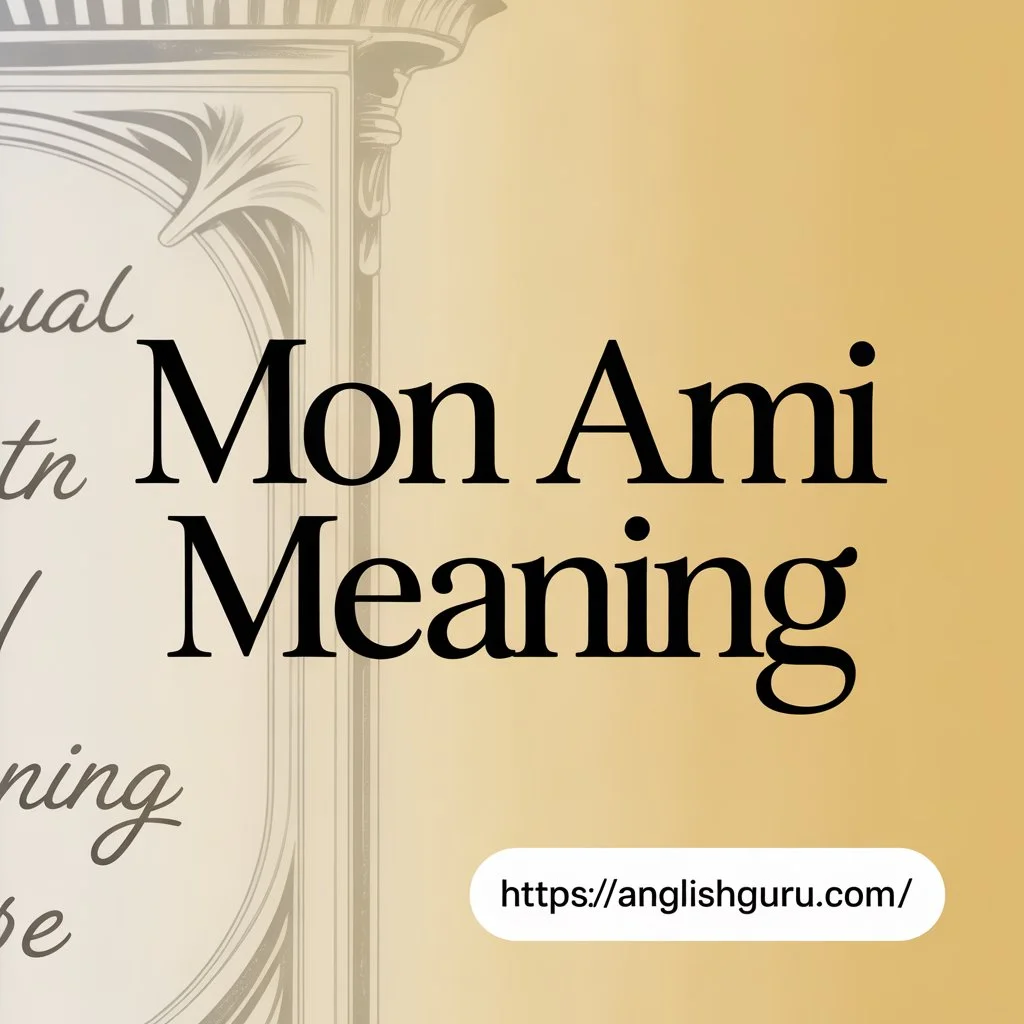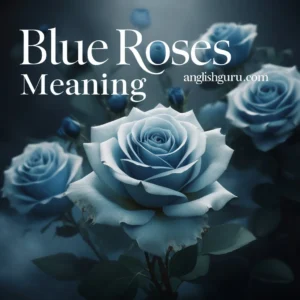The phrase “mon ami” has long held a charming and elegant place in both French and English conversations. You might’ve heard it in movies, songs, or friendly exchanges where someone affectionately says, “Bonjour, mon ami!” But what does mon ami really mean, and when is it appropriate to use it?
In today’s interconnected world, expressions like mon ami often appear in texts, captions, or online chats — yet not everyone understands the nuance behind the phrase. Some use it casually as a friendly term, while others reserve it for close relationships.
At its core, mon ami means “my friend” in French. However, the true mon ami meaning carries more than just friendship — it reflects tone, warmth, and context. Depending on how and to whom it’s said, the phrase can sound formal, affectionate, or even slightly flirtatious.
This article explores the real meaning of mon ami, its origins, cultural background, and 17+ respectful or natural alternatives you can use in professional, polite, or casual contexts. You’ll also find 11 texting examples that show exactly how to use it correctly in modern communication.
By the end, you’ll know how to use mon ami confidently — whether you’re chatting with friends, writing an email, or trying to add a touch of French sophistication to your words.
What Does “Mon Ami” Mean? — Understanding the Real Mon Ami Meaning
Simply put, “mon ami” translates to “my friend.”
It’s made up of two French words:
- Mon → “My” (masculine form)
- Ami → “Friend”
So, mon ami literally means “my (male) friend.”
If you’re referring to a female friend, you would say “mon amie” — note the extra e at the end.
However, French grammar rules make things slightly tricky. Because ami(e) begins with a vowel, you still say mon even with amie to make pronunciation smoother. So you’ll still hear mon amie even when talking about a woman.
👉 In essence:
- Mon ami → My (male) friend
- Mon amie → My (female) friend
But tone and context matter a lot. Depending on how it’s used, mon ami can carry:
- A friendly tone (“Hello, my friend!”)
- A formal tone (“Good day, my friend.”)
- A romantic or teasing tone in certain contexts (“Bonsoir, mon ami.”)
The Origin and Background of “Mon Ami”
The phrase mon ami dates back to Old French, used as a direct term of affection and respect.
In Medieval France, mon ami (and ma amie) were used to address close companions, partners, or even lovers. Over centuries, its tone softened and became a general term for friendship and goodwill.
As French language and culture spread across Europe, North America, and Africa, mon ami entered common English usage. It’s now heard in casual greetings, films, and even business exchanges — particularly when people want to sound friendly or worldly.
For example, think of iconic movie characters saying lines like:
“Ah, mon ami, it’s been too long!”
That elegant mix of warmth and respect makes mon ami timeless.
Today, you’ll see mon ami appear:
- In texting and captions, as a stylish or endearing phrase.
- In restaurants or shops, when staff greet regular customers warmly.
- In emails or international communication, to convey friendliness with a European touch.
Why the “Mon Ami” Meaning Matters in Modern Language
Understanding the real meaning of mon ami goes beyond translation. It’s about recognizing how tone, intent, and context influence the message.
For English speakers, saying “mon ami” adds cultural flair. But for French speakers, it can sound too intimate or old-fashioned if used incorrectly.
Here’s why awareness matters:
- Cultural nuance: French people rarely call someone mon ami unless they are genuinely close.
- Tone of familiarity: Using it too casually can sound forced or insincere.
- Professional sensitivity: In formal writing or business communication, it’s better to use neutral terms like collègue (colleague) or contact professionnel.
So, while “mon ami” sounds charming, use it thoughtfully — especially in multilingual or international conversations.
Cultural Sensitivity Around “Mon Ami”
The word ami might seem simple, but in French culture, friendship is deeply personal. A true ami isn’t just a casual acquaintance — it’s someone with emotional closeness.
Here are some key cultural notes to remember:
- Avoid overuse: Using mon ami with strangers can feel unnatural to native speakers.
- In French, context defines closeness: Instead of mon ami, people might just say the person’s name or use mon copain (my buddy) or ma pote (my pal).
- Gender awareness: Always respect gendered forms (mon ami vs mon amie).
- In English contexts, “mon ami” is often used humorously or affectionately, not literally.
✅ Best Practice:
Use mon ami when you truly mean it — when addressing a close friend or when you want to sound friendly but refined.
Why Look for Alternatives to “Mon Ami”?
Even though mon ami is elegant, it may not always fit every situation. You might want alternatives that:
- Sounds natural in English conversations.
- Fit professional or casual settings.
- Avoid potential cultural misinterpretations.
For example, in workplaces or formal writing, my friend may sound too personal, and mon ami might feel out of place. Having respectful, modern alternatives helps you communicate clearly and appropriately.
🟩 15+ Polite, Professional & Casual Alternatives to “Mon Ami” (With Examples)
Below are 17 alternative ways to say “mon ami,” categorized by tone and context — each with a clear explanation and example.
1. My Friend
Tone: Neutral | Best for: Everyday speech or warm messages
This is the direct English translation of mon ami and works perfectly in casual or polite exchanges.
Example:
“Hello, my friend! It’s great to hear from you again.”
2. Dear Friend
Tone: Polite & affectionate | Best for: Letters or heartfelt messages
Adds warmth and respect without being overly emotional.
Example:
“Dear friend, thank you for your thoughtful note — it meant a lot.”
3. Close Companion
Tone: Formal | Best for: Speeches, writing, or tributes
A refined phrase that shows long-term trust or a deep connection.
Example:
“He has been a close companion through every stage of my life.”
4. Trusted Ally
Tone: Respectful | Best for: Professional or teamwork settings
Highlights collaboration and reliability — excellent for work or leadership contexts.
Example:
“You’ve always been a trusted ally in every challenge we’ve faced.”
5. Good Buddy
Tone: Friendly | Best for: Casual conversations
A relaxed, cheerful term that captures friendly energy.
Example:
“We’ve been good buddies since college.”
6. Pal
Tone: Informal | Best for: Texts or chats
Short and simple — a go-to for informal interactions.
Example:
“Hey pal, what’s the plan for tonight?”
7. Partner in Crime
Tone: Playful | Best for: Jokes or close friendships
Fun and lighthearted, often used for friends who share adventures or mischief.
Example:
“You’re my forever partner in crime — always up for a laugh.”
8. Confidant
Tone: Formal | Best for: Emotional or serious contexts
Refers to someone you trust deeply with personal matters.
Example:
“She’s not just a friend — she’s my confidant.”
9. Workmate / Colleague
Tone: Professional | Best for: Office or business use
Professional yet personable. Avoids being too casual.
Example:
“My colleague and I collaborated closely on this project.”
10. Comrade
Tone: Neutral | Best for: Team spirit or shared goals
Often used to express unity or camaraderie.
Example:
“Comrades in effort, we built this together.”
11. Bro / Sis
Tone: Very casual | Best for: Informal texting
Used among close friends, emphasizing familiarity.
Example:
“Hey bro, miss you! Let’s catch up soon.”
12. Bestie
Tone: Modern & friendly | Best for: Social media, chats
Popular among younger audiences for close friendships.
Example:
“Hanging out with my bestie — always the best vibes!”
13. Homie
Tone: Casual / slang | Best for: Online or friendly banter
Represents closeness with a laid-back tone.
Example:
“That’s my homie — always got my back.”
14. Mate
Tone: Regional (British/Australian) | Best for: Friendly but polite tone
Used widely in English-speaking countries as an informal greeting.
Example:
“Cheers, mate! Appreciate the help.”
15. Kindred Spirit
Tone: Poetic | Best for: Emotional writing or deep bonds
Used to describe someone with shared values or understanding.
Example:
“We’re kindred spirits — our friendship feels effortless.”
16. Close Acquaintance
Tone: Formal | Best for: Professional introductions
A polite term for someone you know well but aren’t intimate with.
Example:
“He’s a close acquaintance from our university days.”
17. True Friend (Bonus)
Tone: Sincere | Best for: Heartfelt communication
Conveys loyalty and authenticity.
Example:
“A true friend stands by you no matter what.”
🟦 11 Texting Examples Using “Mon Ami” & Its Alternatives
- “Hey, mon ami! How have you been lately?”
- “Good morning, my dear friend — hope your week’s going well.”
- “Always great chatting with you, pal!”
- “You’re a true friend, always so supportive.”
- “Appreciate your help, mate — couldn’t have done it without you.”
- “Bonjour, mon ami! Ready for our coffee catch-up?”
- “Hey, bestie, you make everything more fun.”
- “Glad to have such a kindred spirit in my life.”
- “You’ve been a trusted ally through everything.”
- “Thanks, bro — you’re the best!”
- “Mon ami, it’s been ages! Let’s reconnect soon.”
🟧 Tone and Context: How to Use “Mon Ami” Correctly
| Tone | When to Use | Example |
|---|---|---|
| Friendly | Among close friends or warm greetings | “Hey mon ami, long time no see!” |
| Formal | In cultural or polite exchanges | “Bonjour, mon ami. It’s an honor to meet you.” |
| Professional | Avoid — use “colleague” or “partner” instead | “My colleague Henry and I worked together.” |
| Playful | Light teasing or humor | “Bonsoir, mon ami — looking sharp today!” |
| Written | Letters, notes, captions | “To my dear friend, thank you for always being there.” |
🟥 Why Inclusive and Respectful Language Matters
Using terms like mon ami thoughtfully shows cultural awareness and respect for linguistic nuance. When used with care:
- It strengthens genuine connections.
- It prevents misunderstandings.
- It honors cultural diversity.
- It adds elegance to your communication.
Language reflects our mindset — when we choose words consciously, we build bridges rather than barriers.
Final Thoughts on the Real “Mon Ami” Meaning
Theterm “term “ mon am”” i meaning extends far beyond “my friend.” It carries history, culture, and a touch of emotional warmth that transcends translation.
Whether used in French or English, mon ami reminds us that friendship is universal — yet how we express it depends on tone, respect, and authenticity.
So, next time you say ‘mon ami,’ do it with awareness. In a world of fast messages and emojis, a phrase like this still holds elegance and sincerity.
Ultimately, whether you say “my friend,” “mate,” or “mon ami,” the goal remains the same — to connect meaningfully, respectfully, and warmly.





